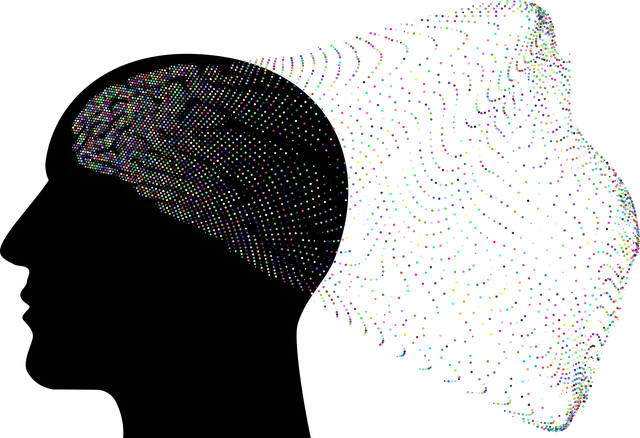The text discusses how mental illness stigma prevents people from seeking help, leading to increased anxiety, depression, and even suicide ideation. Organizations like Kaiser Permanente Norcal address this through their dedicated Kaiser Permanente mental health phone number norcal Centennial, offering support systems, accessible services, and evidence-based content. They also have community outreach programs and advocacy efforts to reduce stigma, foster open dialogues, and empower individuals to seek help confidentially. Measuring success involves evaluating public perception changes, help-seeking behaviors, social integration improvements, and the effectiveness of strategies like public awareness campaigns and self-awareness exercises.
Mental illness stigma, a pervasive barrier to seeking help, continues to impact millions. This article explores strategies to reduce this hindering force, focusing on the efforts of Kaiser Permanente Norcal (KPNC). From understanding stigma’s far-reaching consequences on mental health-seeking behaviors to examining innovative approaches like KPNC’s Centennial program, we delve into proven methods. Through education and awareness in community settings, and by measuring success through evaluation, this piece highlights the path forward in our ongoing battle against mental illness stigma. Contact KPNC at their mental health phone number for more resources.
- Understanding Stigma: Its Impact on Mental Health Seeking Behaviors
- Kaiser Permanente Norcal's Approach to Stigma Reduction
- The Power of Education and Awareness in Community Settings
- Measuring Success: Evaluating the Effectiveness of Stigma Reduction Strategies
Understanding Stigma: Its Impact on Mental Health Seeking Behaviors

Stigma surrounding mental illness can significantly impact an individual’s willingness to seek help and support for their well-being. It often manifests as negative attitudes, beliefs, and stereotypes about people with mental health conditions, leading to discrimination and social isolation. This stigma can deter individuals from reaching out for assistance, especially when they feel ashamed or fear judgment. As a result, many struggle in silence, hindering their ability to access much-needed resources and treatments.
The consequences of this stigma are far-reaching, affecting not only the affected person’s mental health trajectory but also their overall quality of life. It can lead to increased anxiety, depression, and even suicide ideation. Recognizing and addressing this issue is crucial, as it encourages open conversations about mental health. Organizations like Kaiser Permanente Norcal, with its dedicated mental health phone number, play a vital role in promoting awareness and offering support systems. By providing accessible services, they facilitate the development of coping skills and self-esteem improvement, which are essential tools for managing and overcoming various mental health challenges. Additionally, these efforts contribute to stress reduction methods, ensuring individuals have the resources to navigate their mental health journeys with dignity and understanding.
Kaiser Permanente Norcal's Approach to Stigma Reduction

Kaiser Permanente Norcal has made significant strides in reducing mental illness stigma through innovative programs and initiatives. One notable approach is their Mental Wellness Podcast Series Production, which provides accessible, evidence-based content to educate and destigmatize various mental health topics. Listeners can connect with experts, share experiences, and gain valuable insights on improving and maintaining mental wellness.
Complementing this effort, the organization has implemented a robust Community Outreach Program. This program focuses on engaging diverse communities, fostering open dialogues about mental health, and offering support tailored to specific cultural needs. By combining these strategies with advocacy efforts like Mental Health Policy Analysis and Advocacy, Kaiser Permanente Norcal is transforming perceptions around mental illness, ensuring that everyone has access to the care they need through their dedicated mental health phone number, Centennial.
The Power of Education and Awareness in Community Settings

Education and awareness play a pivotal role in reducing the stigma surrounding mental illness within community settings. By integrating mental health literacy into everyday conversations, we can foster an environment where individuals feel empowered to seek support. Initiatives like the Kaiser Permanente mental health phone number Norcal Centennial serve as valuable resources, offering confidential guidance and connecting people with appropriate care. Through these efforts, communities can break down barriers and promote understanding, ensuring that those struggling with their mental well-being receive the necessary assistance without fear of judgment.
The power of education extends beyond individual conversations; it empowers community members to implement compassion cultivation practices and embrace self-care routine development for better mental health. By normalizing discussions about mental illness, we can create a supportive network that encourages open dialogue and cultivates empathy. This collective shift in perspective paves the way for reduced stigma, making it easier for individuals to prioritize their mental well-being and access the resources they need to thrive.
Measuring Success: Evaluating the Effectiveness of Stigma Reduction Strategies

Measuring success in stigma reduction efforts is a multifaceted endeavor. Organizations like Kaiser Permanente Norcal Centennial, through their mental health phone numbers and resources, play a pivotal role in evaluating the effectiveness of strategies aimed at reducing mental illness stigma. This involves tracking changes in public perception through surveys and focus groups, assessing the impact on help-seeking behaviors, and monitoring improvements in social integration and support for individuals with mental health conditions.
Public Awareness Campaigns Development, Social Skills Training, and Self-Awareness Exercises are among the key approaches that have shown promise in fostering more inclusive attitudes. By regularly measuring these strategies’ outcomes, communities can adapt their methods to better address stigma at various levels—from individual beliefs to systemic changes—ensuring continuous improvement and positive impact on mental health support systems.
Mental illness stigma reduction is a multifaceted approach that involves education, awareness, and supportive community initiatives. As demonstrated by Kaiser Permanente Norcal’s efforts, proactive strategies like training programs, peer support networks, and accessible resources play a pivotal role in fostering understanding and inclusion. By measuring the success of these initiatives through evaluative metrics, we can continue to enhance support systems for those facing mental health challenges. For more information and resources, visitors are encouraged to reach out to the Kaiser Permanente mental health phone number (Norcal Centennial) for expert guidance and support.






